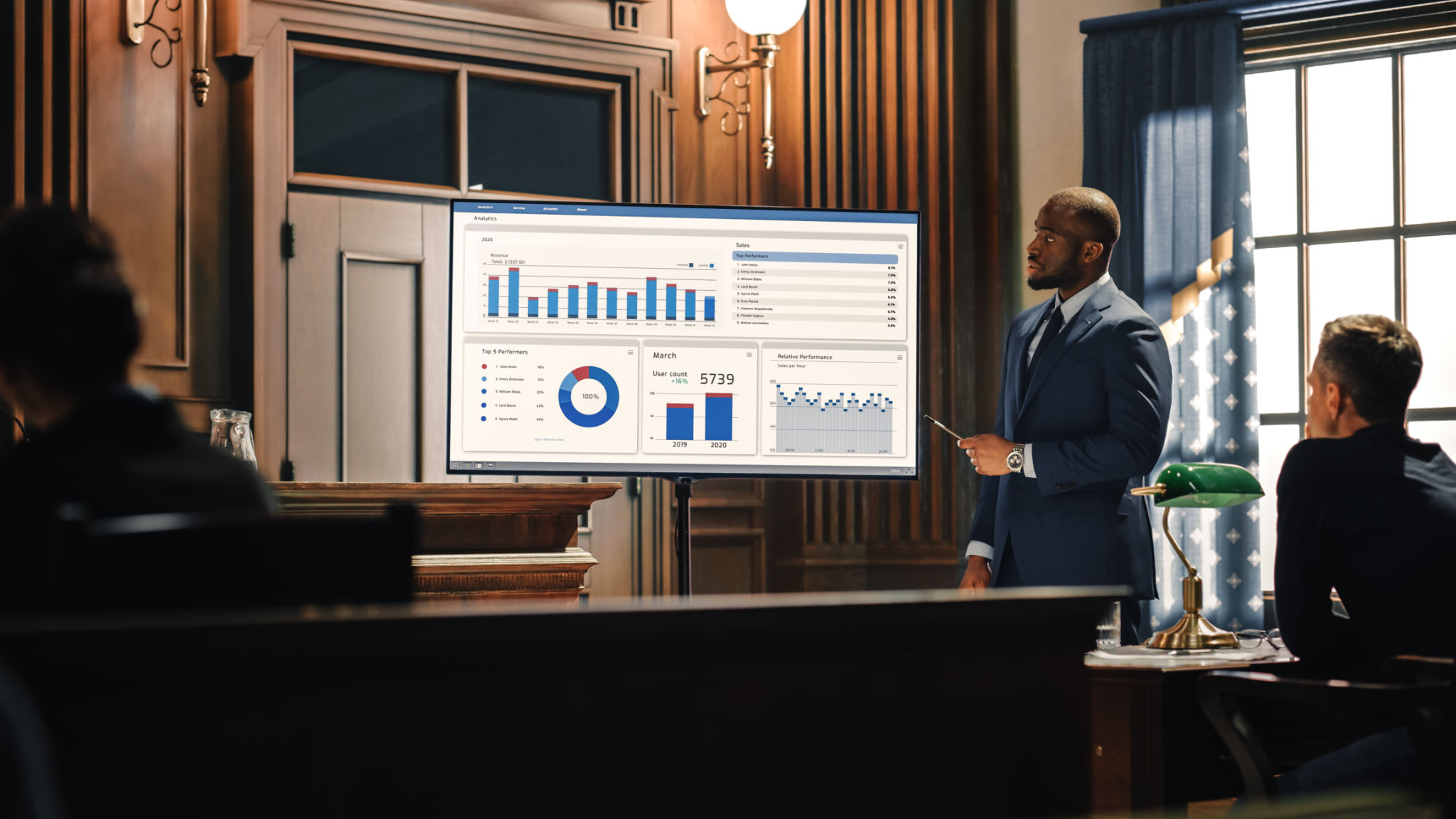The Future of Court Reporting: Innovations and Trends
Introduction to Court Reporting Innovations
As technology continues to evolve, the field of court reporting is also experiencing significant advancements. These innovations are transforming how court reporters capture, transcribe, and manage legal proceedings. With a focus on efficiency and accuracy, the future of court reporting is poised for exciting changes.
The integration of new technologies is not only enhancing the capabilities of court reporters but also reshaping the entire judicial system. As legal professionals adapt to these changes, understanding the trends and innovations is crucial for staying ahead in the industry.

Real-Time Transcription and AI Integration
One of the most notable advancements in court reporting is the use of real-time transcription technology. This allows court reporters to provide instant text versions of spoken words, increasing accessibility and comprehension during legal proceedings. Real-time transcription is particularly beneficial in fast-paced environments where immediate access to information is critical.
Additionally, the integration of artificial intelligence (AI) is revolutionizing transcription accuracy. AI-powered tools can recognize various accents and dialects, reducing errors and improving the overall quality of transcripts. This technology is especially useful in courts with diverse linguistic needs.

Remote Court Reporting Solutions
The shift towards remote court reporting has been accelerated by recent global events. Virtual courtrooms and remote depositions are becoming more common, allowing participants to join proceedings from anywhere in the world. This trend not only enhances convenience but also reduces travel costs and logistical challenges.
Remote solutions are supported by secure video conferencing platforms, ensuring that all parties can participate without compromising the integrity of the proceedings. As these technologies continue to develop, they promise to make court reporting more accessible and efficient than ever before.

Speech Recognition and Voice-to-Text Technology
Speech recognition technology is another area experiencing rapid growth. Voice-to-text software can automatically transcribe spoken words into written text, streamlining the transcription process for court reporters. This technology is continually improving in terms of accuracy and speed.
Court reporters can now rely on voice-to-text solutions to assist with their workload, allowing them to focus on more complex tasks that require human judgment and expertise. As speech recognition technology becomes more sophisticated, it will play an increasingly vital role in the future of court reporting.
Enhanced Data Security Measures
With the rise of digital solutions in court reporting, data security has become a top priority. Protecting sensitive information from unauthorized access is crucial in maintaining the confidentiality and integrity of legal proceedings. Enhanced encryption methods and secure data storage solutions are being implemented to safeguard transcripts and recordings.
Legal professionals are also required to comply with strict data protection regulations, ensuring that all digital communications are secure. By prioritizing data security, court reporting services can provide peace of mind to clients and stakeholders.

The Future Outlook
The future of court reporting looks promising as these innovations continue to evolve. As the industry embraces technological advancements, court reporters will be better equipped to handle complex legal proceedings with precision and efficiency. The integration of these technologies not only benefits court reporters but also enhances the overall judicial process.
Staying informed about the latest trends and innovations in court reporting is essential for professionals seeking to thrive in this ever-changing landscape. By leveraging these tools and technologies, court reporters can continue to deliver exceptional service and uphold the standards of justice.